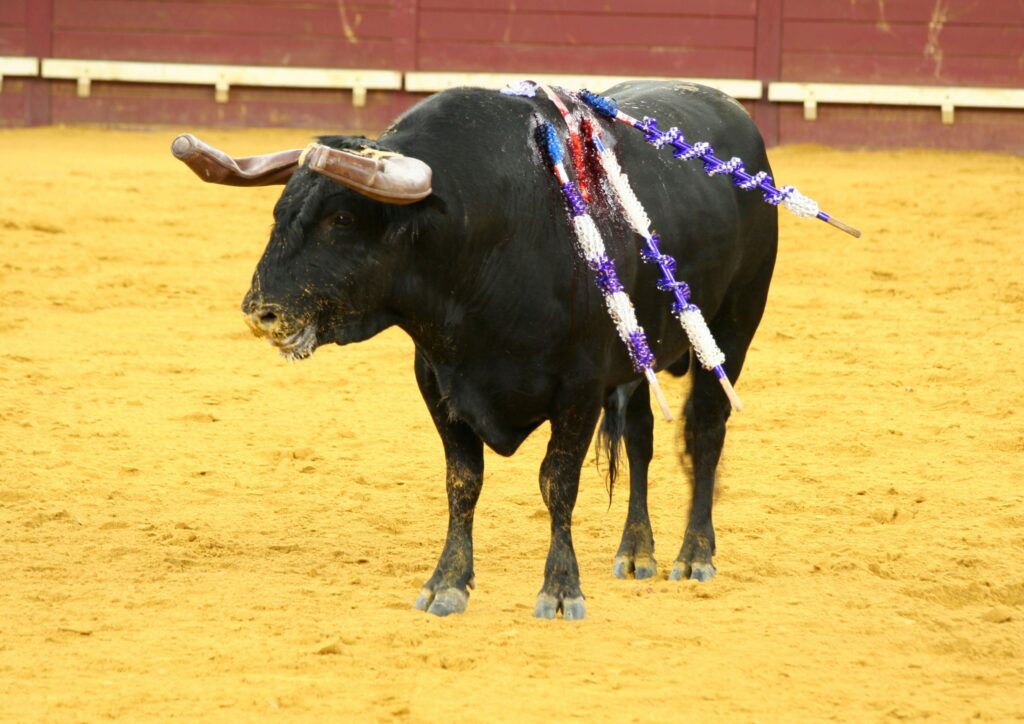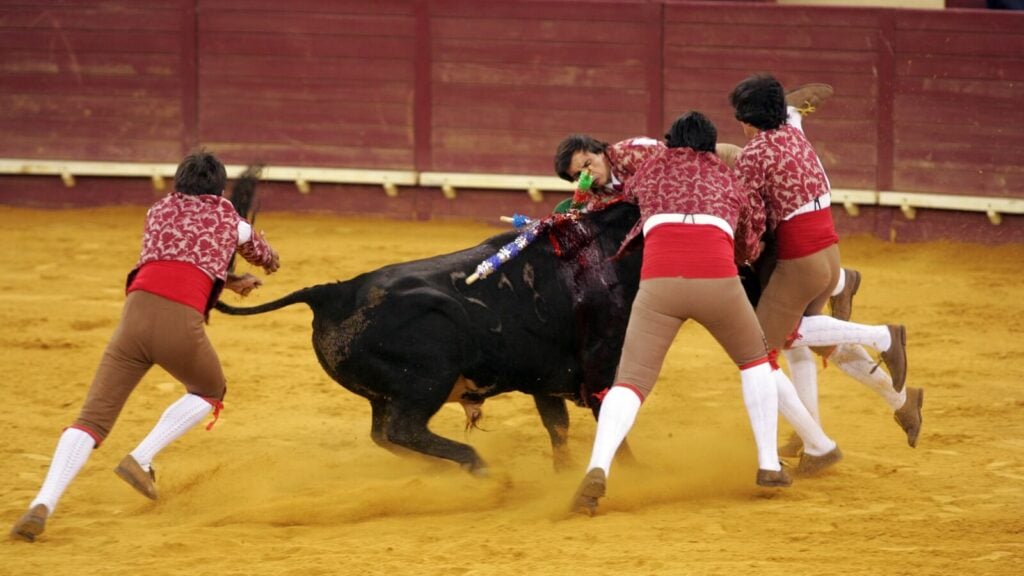Last week, Brazilian actor and comedian Fábio Porchat performed a stand-up show at the Campo Pequeno Bullring in Lisbon, Portugal. There, the entertainer took the opportunity to call out the bullfighting industry, which has earned criticism over animal cruelty concerns.
The bullring where Porchat performed started showcasing bullfights 130 years ago and decades later, concerts and other events joined the agenda too.
The Portuguese bullfighting season lasts from April until late summer, with tickets costing attendees around €15 to €50. The ring can seat nearly 9,000 spectators.

Porchat – who boasts 6.2 million followers on Instagram, and nine million on Twitter – made the comments at the closing of his show. He told audience members that he hopes by the time he returns to the city, bullfighting will no longer be permitted at the venue.
“People, we are in the 21st century… 2022. I wanted only people to perform here, I didn’t want animals to perform here anymore. This is a dream. Let’s hope that this happens. Please end the bullfight,” he declared. “Thank you, my people.”
The speech was met with enthusiastic applause and a standing ovation from many audience members, according to videos taken at the show.
Porchat’s comments followed an online pressure campaign organized by Frente Ativa pela Libertação Animal (FALA), a non-profit working to protect animals.
Bullfighting in Portugal
Proponents of the “sport” maintain that Portugal’s bullfighting industry is humane, given that the animal is not killed during the spectacle (as they are in Spain).
News outlet ESDAW, which predominantly covers animal protection, explains the system on its website.
In Portuguese bull fights, the main fighter, or cavaleiro, rides a horse. Atop the animal, the cavaleiro hurls various weapons at the bull, whose horns are filed down.
The cavaleiro launches harpoon-like weapons at the bull until they are lodged into their body. Some of the spears act as flags stuck into the top of the animal.
The aim is for the bull to chase the horse – who is routinely swapped out for new horses during the match – until exhaustion. Then, the cavaleiro leaves the ring as eight unarmed men enter on foot. The group challenge the bull together, and pin the animal down until a victory is declared.
Although it is illegal to kill bulls during fights throughout most of Portugal, a majority of the animals used die after the match, according to ESDAW. The organization says more than 4,000 bulls are killed in the country every year due to such events.

“This happens behind the scenes, hours or even days after the bullfight, since often bullfights in Portugal occur on Fridays and the slaughter man may not arrive until Monday,” ESDAW explains. “The bull spends this time in isolation bleeding from the wounds inflicted by the bandarilhas, without any veterinary assistance.”
The fall of the bullfighting industry
Porchat isn’t alone in his view on bullfighting. An ever-growing number of people are calling for the fights to be banned for good.
In September 2021, plant-based meat brand Heura launched its vegan pork products at a bullring in Spain. Like the Campo Pequeno Bullring in Lisbon, the Spanish La Monumental arena has become a venue for concerts and other animal-free forms of entertainment.
“A cycle of injustice can be obliterated once people refuse to follow the status quo and start standing up for what they believe in,” Heura CEO and co-founder Marc Coloma said in a statement.
“Society found a way to transform La Monumental from a place of barbaric animal abuse to an amazing platform for an evolved form of entertainment … Heura recognizes that the power sits with the people, and we ask the world to make their voices heard.”
And some governments are starting to listen. In February, Sinaloa became the fifth state in Mexico to outlaw bullfighting.
This article was originally published on February 21, 2022. It was updated on February 24, 2022 to include Frente Ativa pela Libertação Animal’s campaign.






